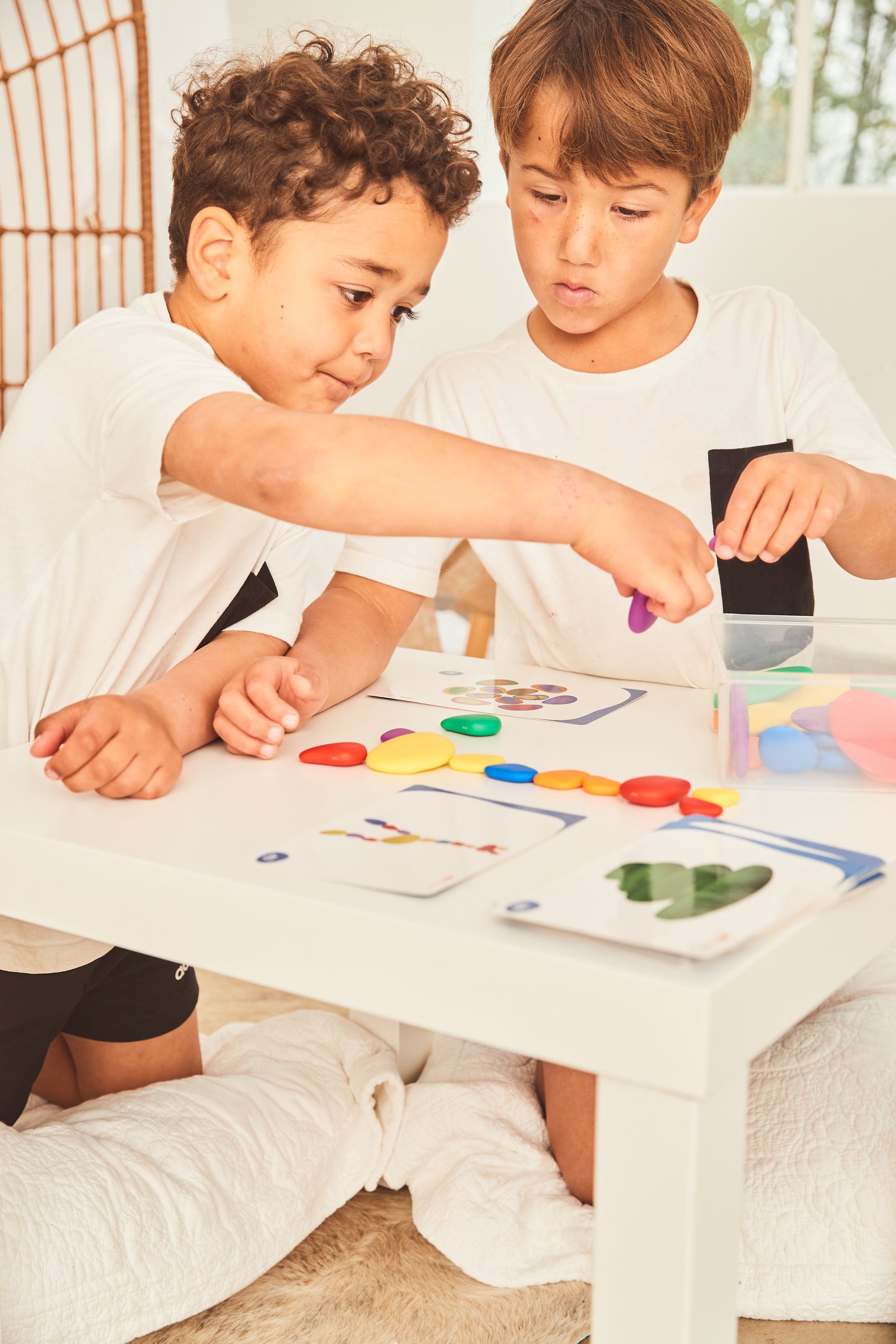
As parents and caregivers, our interactions with children shape their development in profound ways. From the very first moments we engage with them, we are setting the foundation for how they will navigate the world. But are we fostering independence and resilience, or are we reacting in ways that limit their growth?
At Edx Education, we believe that small, meaningful interactions can help children build essential life skills, such as decision-making, problem-solving, and resilience. Through our range of educational toys, downloadable resources, and our Play, Learn & Create podcast, we advocate for play-based learning that empowers children to take charge of their own development.
Interaction vs. Reaction: Why It Matters
The distinction between interacting with a child and simply reacting to their needs can have long-lasting effects. Interaction encourages engagement, independence, and critical thinking, while reaction often involves solving problems for them, which can hinder their development.
Consider a common scenario: a teacher who doesn’t allow parents into the classroom each morning. While it’s natural for parents to feel concerned—“But they’re still so young, who will help them?”—the reality is that children as young as four are more than capable of walking into class, putting their school bags away, and organising their belongings. These small acts of independence empower them to manage tasks and communicate readiness to learn.
By contrast, when parents are allowed to do these tasks for them, children miss out on the opportunity to build confidence. They may struggle to make decisions, get frustrated, and start the day feeling unsure of themselves. Tears and tantrums often follow when children aren’t empowered to take responsibility for themselves.
The Importance of Building Independence
In our busy lives, it’s easy to fall into the habit of doing everything for our children. We want to be efficient, and it often feels quicker and easier to complete tasks ourselves. But these are missed opportunities for meaningful interaction. Instead of simply reacting to a child’s needs, we can use these moments to teach them new skills.
For example, even the most basic tasks—getting their own drink, choosing a snack, dressing themselves, or tidying up toys—are important learning experiences. Through these activities, children develop fine motor skills, problem-solving abilities, and a sense of independence that will serve them well as they grow.
At Edx Education, our toys are specifically designed to support these kinds of learning experiences. Open-ended toys like our Rainbow Pebbles® encourage creativity, fine motor skills, and decision-making. Children can explore patterns and shapes, building their spatial awareness and problem-solving abilities. Similarly, Maths Cubes offer endless possibilities for hands-on learning, helping children understand basic math concepts while also developing their fine motor coordination.
Our Linking Cubes Reflection Set encourages counting, pattern recognition, and problem-solving skills. By building and creating with these versatile cubes, children are given the chance to think critically and independently. The Number Rods to Go playset takes this a step further by introducing children to early mathematical concepts through tactile and visual learning, all while fostering independence in learning.
Our Own Experience with Interaction
Recently, my family faced a situation that made the difference between interaction and reaction even clearer. My child, who is normally quite independent, had started demanding things—like shouting, “I want water, now!”—instead of getting it himself, something he had been doing for months. At first, I couldn’t figure out what had changed.
After observing the interactions between him and the caregiver who looks after him for an hour or two each day, it became clear that she was reacting to his demands, rather than engaging with him. Instead of encouraging him to do things for himself, she was doing everything for him. This shift in their dynamic resulted in him pushing boundaries and trying to take control, becoming what some might call “the boss.”
This was a wake-up call for us. We realised that the lack of meaningful interaction had led to him becoming more dependent. Instead of growing through small challenges, he was being unintentionally disempowered.
Empowering Children through Play-Based Learning
This experience taught us the importance of using everyday moments to empower our children. By interacting rather than reacting, we give them the tools they need to build resilience and confidence. As Simon Sinek, a leadership expert, points out: Leaders empower others to complete tasks, while bosses simply demand. We want to raise children who are leaders of their own learning.
At Edx Education, we encourage parents and caregivers to reflect on their interactions with children. Are you empowering your child to learn, make decisions, and solve problems? Or are you doing everything for them? Whether it’s during playtime, mealtime, or the school drop-off, these small moments are critical for your child’s development.
We invite you to explore our range of educational toys and downloadable resources, all designed to support play-based learning. Toys like MyGears®, Joey Jump, and Maths Cubes provide children with the opportunity to learn through exploration and creative play. And don’t forget to tune into our podcast, Play, Learn & Create with Edx Education, where we discuss practical ways to foster your child’s growth and independence. Through thoughtful interaction, we can help our children build the skills they need to thrive.
Heather Welch
